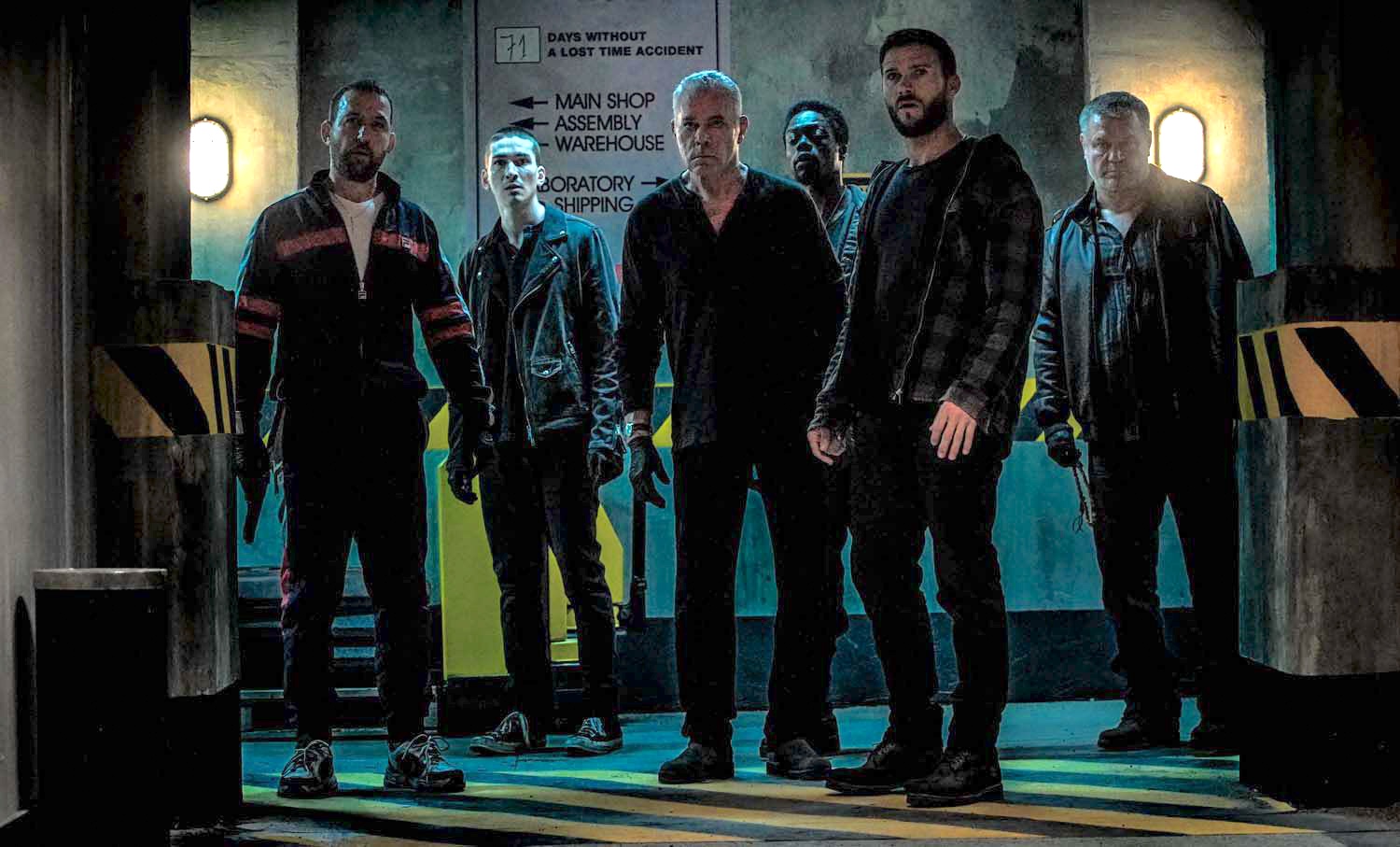1992 South Los Angeles was a particularly tumultuous time and place in the city’s history. Racial tensions flared up and scarred its community for decades to come following the not-guilty verdict of the police officers who killed Rodney King.
Co-writer and director Ariel Vromen (The Angel, Criminal) penned the screenplay for 1992 with Sascha Penn (Creed II). The movie stars Tyrese Gibson as a newly-released father who is desperately trying to rebuild his life and his relationship with his son Antoine (Christopher A’mmanuel).
The tightrope walk of 1992 lies in its relative relegation of the deadly riots to the background of the film while focusing on two uneasy father/ son narrative who carry out a seemingly straightforward heist which goes awry.
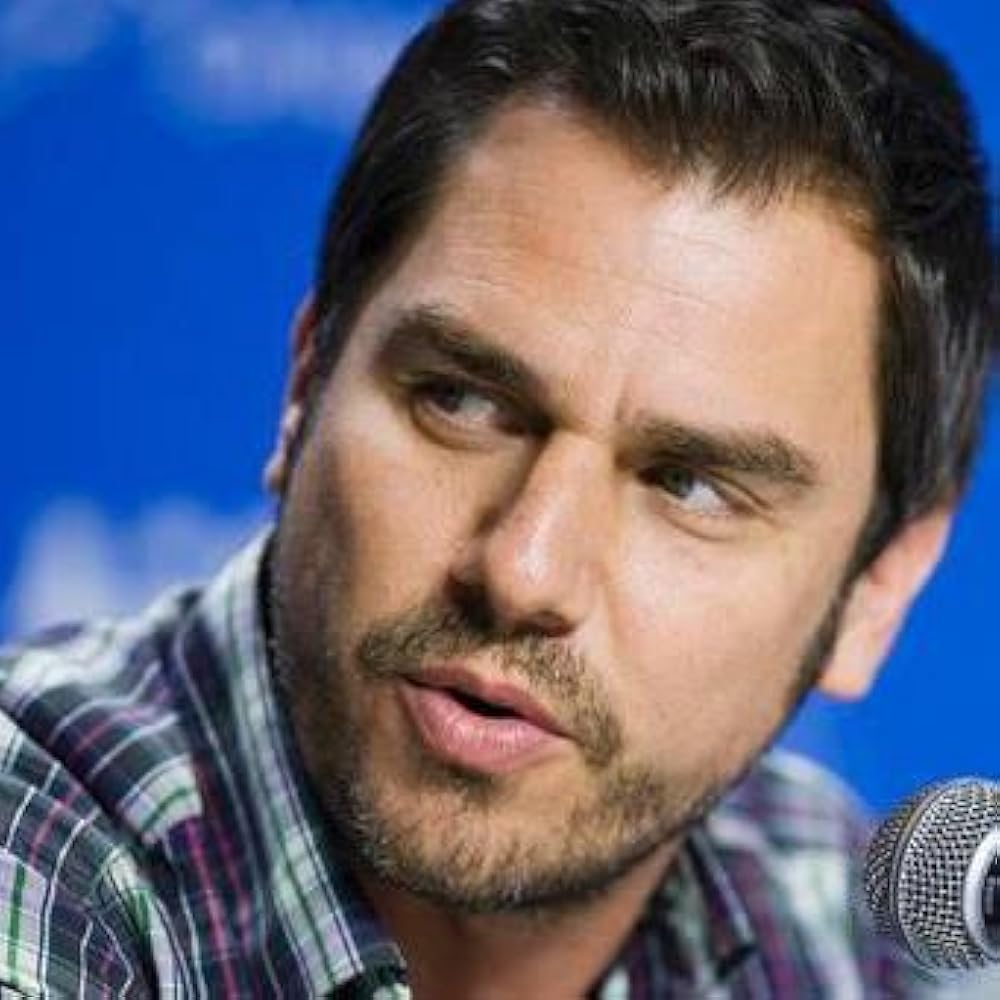
Ariel Vromen
Each of these stories is a film in its own right. Ariel Vromen discusses braiding these two story strands into a unified whole with Creative Screenwriting Magazine.
The Impact Of George Floyd
The kernel of the story was sparked by Sascha Penn who wrote the first draft. Ariel Vromen read that draft around the time of the George Floyd murder and already tense race relations were boiling over once again. Vromen started reading what he thought was a historical script which became a heist.
Vromen took the microcosm of the situation and transferred it inside a factory that manufactures catalytic convertors. There are two families – a white one and a black one thrust into a pressure cooker scenario and they clash as each tries to escape with the haul. The heist is a metaphor of what happening on the streets of South Central Los Angeles.
It’s a moment of losing everything, trying to gain everything, and eventually destroying everything
Vromen concedes it’s a challenge not to zone into a biopic drama with such “big subject matter,” so delicately balancing the two storylines was paramount.
Emotional Attention
Ariel Vromen uses this mantra as a constant reminder to keep the characters and audiences invested in 1992. “I try to keep a little bit of pressure in every sequence.” This applies to the character interactions whether they’re between a father and son or a group of criminals trying to flee the crime scene.
He aims to “unify the tone of the rough danger that starts in the street” and ends in the factory.
This tonal balance is vital because the heist scenes could easily devolve into melodrama and the street scenes into documentary.
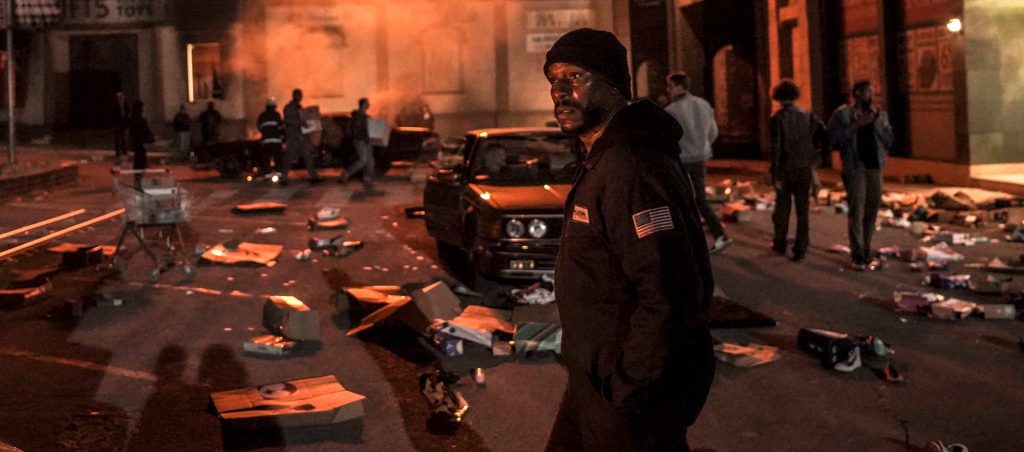
Mercer Bey (Tyrese Gibson) Photo courtesy of Lionsgate
1992 addresses cultural sensitivities in a way that ring true for everyone. Vromen and Penn achieve this by focusing on the film’s subconscious message – the choice is eventually yours.
Making choices is often a matter of the choices available rather than those preferred. Mercer (Tyrese Gibson) has decided he’s not going to play the hand he’s been dealt any longer and makes different choices in pursuit of a better life for himself and his son. He refuses to participate in the divisiveness that pits neighbor against neighbor; race against race.
Everyone’s making choices based on the circumstances of their traumas
Snoop Dogg Gets Onboard
Snoop Dogg, AKA Calvin Cordozar Broadus Jr. was born in Los Angeles and release his first album Chronic in 1992. He is also an executive producer on the film.
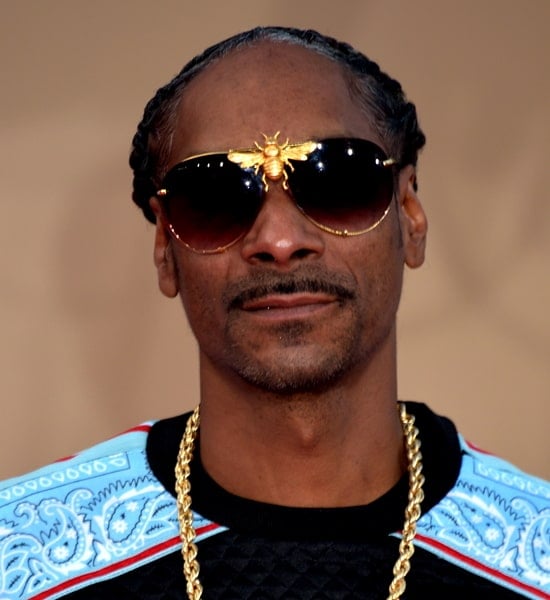
Snoop Dogg
The initial intention was to involve him in the soundtrack and “present the movie to the community that he’s running and given so much of his life to.” His involvement in 1992 will hopefully boost acceptance within these communities.
Another investor read the script on April 29, 1992 – his birthday and the day the riots started. “He felt that this movie is a calling for him.”
Father/ Son Dynamics
Many of the father/ son dysfunction in 1992 stems from a father, in this case, crime family dad Lowell (Ray Liotta) who never really accepts his sons Riggin (Scott Eastwood) and Dennis (Dylan Arnold). They constantly feel under-appreciated, repressed, manipulated, and insecure and understandably resent their father.
Mercer was an absent father to Antoine (Christopher A’mmanuel) for much of his life until recently due to incarceration. Antoine is dealing with abandonment issues. He seeks a sense of belonging and purpose as he gets to know and trust his father who now raises him alone.
These father/ son plots run as parallel storylines in 1992.
Real Time Storytelling
The urgency and tension of the film begins when the tinder box ignites and the wildfire spreads in real time. “I don’t think the city of Los Angeles at that point was really expecting it to go so wild and so destructive,” notes Vromen.
1992 plays out in two parts. There’s a verdict regarding Rodney King and the riots that follow. This is where historical facts and the fictional storyline erupt and interweave.
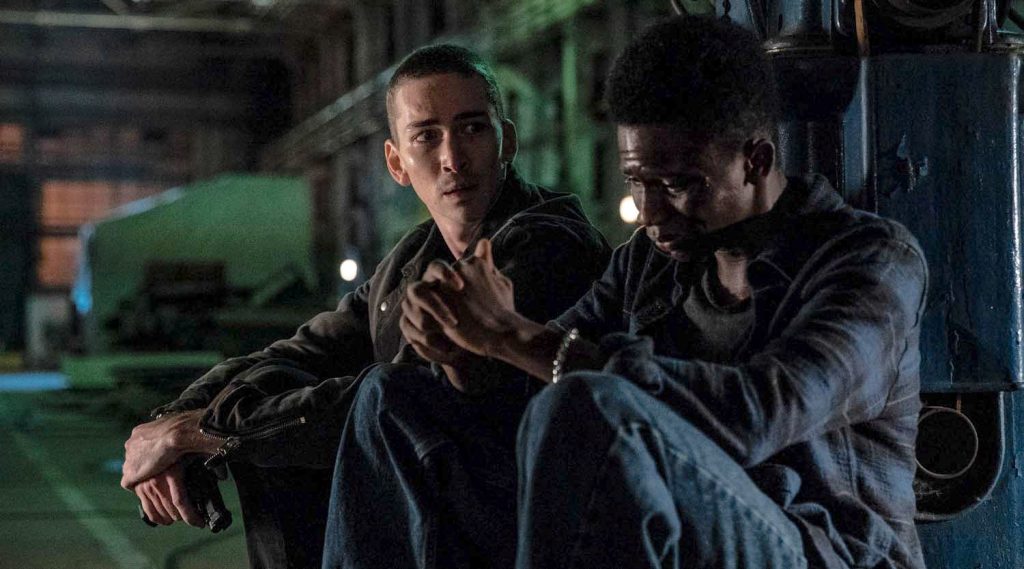
Dennis (Dylan Arnold) and Antoine (Christopher A’mmanuel) Photo courtesy of Lionsgate
“You’re going into a crescendo of a very convoluted day. That’s how you can use it in a thriller and suspense mode to the actual story of the script.”
Key Components Of The Heist
- You have to plan the heist.
- Then you have to reassess.
- Then you need to use an opportunity to go forward with it.
- Then you need to break into the factory.
- Then you need to have some resistance with the security guard.
- Then you need to then you have a safe where the catalytic converters are kept.
- Then you need to break into the safe.
- Then you need to get out of there.
Naturally there are escalating impediments and the heist is no longer guaranteed.
What Makes A Great Film According To Ariel Vromen?
“Cinema will only will survive if you tell a personal, dramatic story. It starts with a great concept, with a great arc of a plot of what are the characters going through,” states Vromen. If a script only contains a bunch of spectacular action scenes, it’s hard for him to connect with the story.
Ideally, Ariel Vromen would like writers and filmmakers at large collaborate more during the filmmaking process as opposed to searching for cast and crew after the screenplay has been written.
“I think one of the problems of Hollywood is that the movies developed just by writers or producers don’t have that extra visual and vision of the filmmaker. A collaboration means the movie is going to have a vision and a tone and you’re not just writing from a living room experience.”
